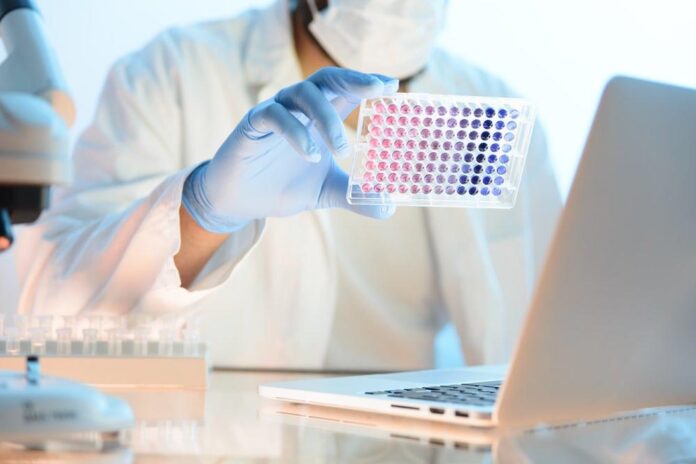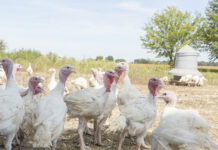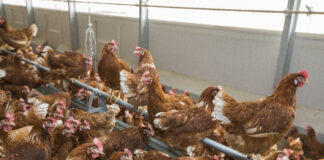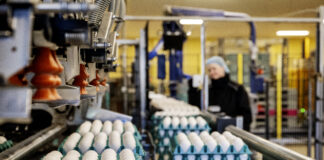
In a new discovery, scientists from The Pirbright Institute confirm that cholesterol production and transport play a crucial role in how Marek’s disease virus (MDV) infects poultry cells.
Researchers also found that inhibiting a protein involved in this pathway can reduce virus replication and spread between cells. These results pave the way for the design of new antivirals and vaccines that interrupt the cholesterol pathway to prevent shedding and transmission of the virus among birds.
Marek’s disease is caused by a highly infectious virus that is spread between poultry through inhalation. Infection with the virus causes cancer and immune system suppression, making birds susceptible to secondary infections. The disease is estimated to cost the global poultry industry more than US $1 billion per year.
Researchers in Pirbright’s Avian Immunology Group took an in depth look at exactly how MDV hijacks the cholesterol pathways of poultry cells in order to replicate. The findings, published in Journal of Virology, showed that MDV increases the cholesterol content of cells and upregulates a protein called lysosomal associated membrane protein 1+ (LAMP-1), which transports cholesterol around the cell.
Scientists also demonstrated that LAMP-1 interacts with an MDV protein known as glycoprotein B, which is integral to viral replication. When the gene for LAMP-1 was switched off, MDV replication and cell-to-cell spread reduced, indicating LAMP-1 plays a vital role in MDV infection.
Dr Shahriar Behboudi, head of the Avian Immunology Group, said: “Our research indicates that MDV uses LAMP-1 to transport one of its own proteins in order to infect other cells. By silencing the gene that produces LAMP-1, we prevented the transportation of this vital MDV protein and therefore hindered the virus’s ability to spread.”
Understanding more about the mechanisms that MDV uses to spread between cells could provide new targets for treatments. The knowledge gained by Pirbright researchers could be used to inform the design of inhibitors that can block the interaction of the virus with proteins involved in cholesterol production and trafficking, or vaccines that are able to switch off specific parts of the cholesterol pathway.
This research was funded by the Biotechnology and Biological Sciences Research Council (BBSRC), part of UK Research and Innovation (UKRI).
Source: The Pirbright Institute
















